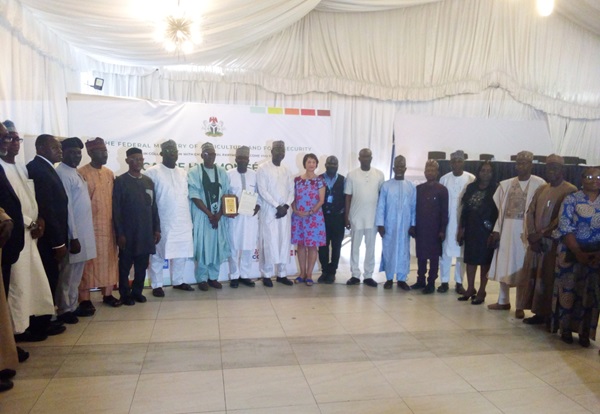
The Cadre Harmonisé (CH) preliminary results presented today revealed that approximately 25 million people in the FCT and 26 states, including internally displaced persons (IDPs) in Borno, Sokoto and Zamfara states, are affected by acute food and nutrition insecurity for the October-December 2024 period.
The analysis, organised by the Federal Ministry of Agriculture and Food Security in collaboration with Cadre Harmonisé, was conducted in Abuja to assess current and projected food and nutrition insecurity across Nigeria.
According to the findings, an estimated 33.1 million people, including 514,474 IDPs in Borno, Sokoto and Zamfara, will likely face acute food and nutrition insecurity from June to August 2025. The affected regions include Borno, Adamawa, Yobe, Gombe, Taraba, Katsina, Jigawa, Kano, Bauchi, Plateau, Kaduna, Kebbi, Sokoto, Niger, Benue, Cross River, Enugu, Edo, Abia, Kogi, Nasarawa, Kwara, Ogun, Zamfara, Lagos, Rivers and the FCT.
Food and nutrition insecurity has been attributed to high prices of food and non-food items, flooding, rising fuel prices and insecurity stemming from insurgency, kidnapping, and banditry, all impacting household food consumption and livelihoods.
It is estimated that 5.44 million children under five years in northeastern and northwestern Nigeria will likely suffer from acute malnutrition between May 2024 and April 2025, including 1.8 million who will need urgent treatment. Additionally, 787,000 pregnant and lactating women will likely suffer from acute malnutrition and will also require treatment.
The permanent secretary of the Federal Ministry of Agriculture and Food Security, Temitope Fashedem represented by the director of nutrition and food security, Nuhu Kilishi emphasised that the 2024 CH results are timely, particularly as the country navigates economic challenges following fuel subsidy removal, which has had a ripple effect on the agricultural sector.
“The major impact is the increased transportation costs due to higher fuel prices, negatively impacting agricultural production. This spike in fuel prices has led to rising transportation costs, reducing farmers’ profit margins and potentially increasing food prices for consumers. Notably, the ongoing insecurity continues to threaten Nigeria’s food and nutrition security. These challenges have led to disruptions in the food system, affecting production, distribution, marketing and even storage, resulting in poor consumption patterns, especially in insecurity-affected areas,” he said.
Fashedem assured that the ministry would work to include all 36 states in future CH analyses. He urged affected states and partners to use these results in planning and implementing food and nutrition security interventions, pledging government support and commitment to the recommendations from this workshop.
The country representative of the Food and Agriculture Organisation of the United Nations (FAO) to the Economic Community of West African States (ECOWAS), Dominique Koffy noted that Nigeria faces economic, climate and security-related shocks that are driving food and nutrition insecurity.
Koffy, represented by Tofiq Braimah, highlighted that the CH analysis provides credible data to identify populations and areas at risk of food and nutrition insecurity. It also helps to prevent the escalation of ongoing food crises in the country. According to him, the CH analysis is a reliable and widely accepted early warning tool for humanitarian programming, food security response targeting, and prioritising development programs.
“FAO is committed to supporting the expansion of CH processes to the remaining 10 states. Training was completed for about 100 analysts from state ministries, departments, and agencies to prepare for the October 2024 analysis cycle. However, due to a lack of data, these states were excluded again. We urge stakeholders, including state governments, to support data collection for the March 2025 CH analysis,” he said.
Deputy head of programme at the World Food Programme (WFP),Manuela Reinfeld stated that food security and demand have become more concerning recently, adding that this issue requires immediate attention.
Reinfeld highlighted that the CH analysis plays a critical role in assessing food insecurity and identifying specific vulnerabilities across Nigeria, especially in areas affected by conflict, displacement, economic hardship and climate shocks. “CH analysis helps us make informed decisions on where to allocate resources and prioritise our targeting. It enables us to address unique needs across different states,” she added.
She assured WFP’s commitment to support the findings of the CH analysis, ensuring that assistance is directed where it is most needed and maintaining the CH process in Nigeria.

